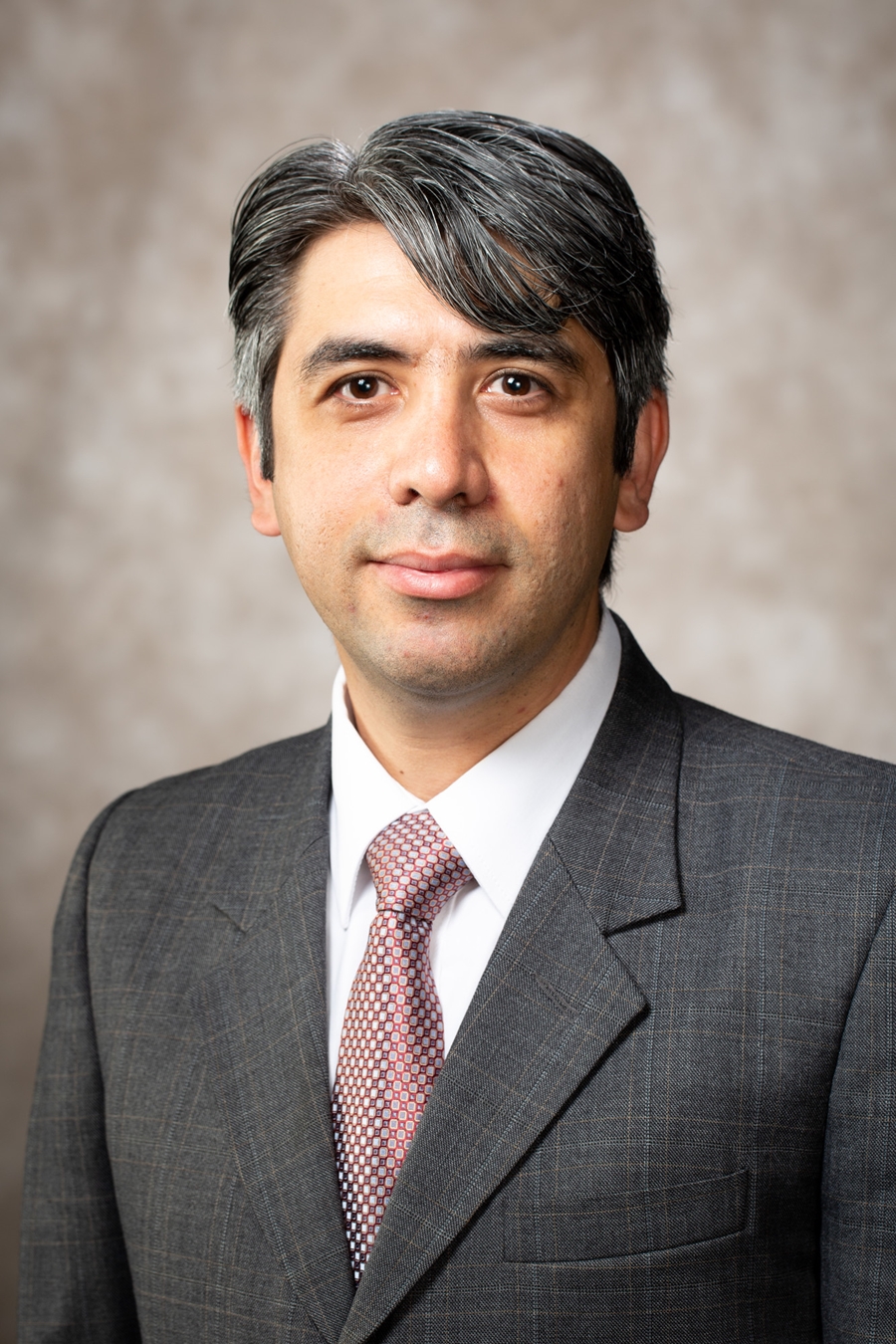FAYETTEVILLE, Ark. – Computer memory could become faster and cheaper thanks to research into a promising class of materials by University of Arkansas physicists.
The scientists are studying bismuth ferrite, commonly abbreviated as BFO, a material that has the potential to store information much more efficiently than is currently possible. BFO could also be used in sensors, transducers and other electronics.
With present technology, information on a computer is encoded by magnetic fields, a process that requires a lot of energy, more than 99 percent of which is wasted in the form of excess heat.
“Is there any way to avoid that waste of energy?” was the question asked by Omid Sayedaghaee, a doctoral candidate in microelectronics-photonics and lead author of the study, published in the journal Physical Review Letters. “We could store information by applying an electric field to write it and a magnetic field to read it if we use materials that are responsive to both fields at the same time.”
BFO is multiferroic, meaning it responds to both electric and magnetic fields, and is potentially suitable for storing information on a computer. But its magnetoelectric response is small. Sayedaghaee and colleagues Bin Xu, Sergey Prosandeev and Charles Paillard, professors in physics, along with Distinguished Professor of physics Laurent Bellaiche, employed the Arkansas High Performance Computing Center to simulate conditions that enhance the magnetoelectric response to the point that it could be used to more efficiently store information by using electricity, rather than magnetism.
The researchers also documented the phenomenon responsible for the enhanced response, which they called an “electroacoustic magnon.” The name reflects the fact that the discovery is a mix of three known “quasiparticles,” which are similar to oscillations in a solid: acoustic phonons, optical phonons and magnons.
About the University of Arkansas: The University of Arkansas provides an internationally competitive education for undergraduate and graduate students in more than 200 academic programs. The university contributes new knowledge, economic development, basic and applied research, and creative activity while also providing service to academic and professional disciplines. The Carnegie Foundation classifies the University of Arkansas among fewer than 2.7 percent of universities in America that have the highest level of research activity. U.S. News & World Report ranks the University of Arkansas among its top American public research universities. Founded in 1871, the University of Arkansas comprises 10 colleges and schools and maintains a low student-to-faculty ratio that promotes personal attention and close mentoring.
Topics
Contacts
Omid Sayedaghaee, graduate assistant
Department of Physics
479-575-2506, omids@uark.edu
Bob Whitby, feature writer
University Relations
479-575-4737,
whitby@uark.edu
